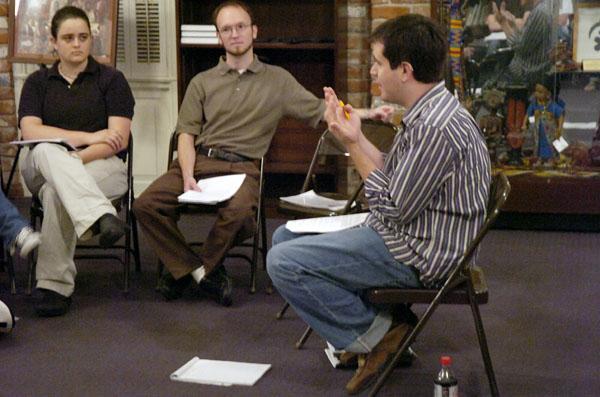The University’s need for awareness of the lesbian, gay, bisexual, transgender and queer communities and a previous lack of faculty commitment prompted changes in the Office of Multicultural Affairs’ Safe Space Campaign. Bruce Parker, new Safe Space coordinator and curriculum theory doctoral student, hosted the first general training session in which he aimed to transform students and staff into Safe Space hosts and allies.The responsibilities of a Safe Space host include serving as a source of refuge and information for LGBTQ students, as well as stopping homophobic comments or harassment in classrooms, Parker said. Safe Space allies are students supportive of the cause and interested in learning about it.Members of the LGBTQ community shared insight and explanations of their lifestyles to promote understanding and awareness with about 10 trainees Monday night at the African American Cultural Center.The campaign works to make the University a more stable place for LGBTQ students by providing resources, support and training to faculty and students who want to become Safe Space hosts and allies, respectively.Previous semesters’ training sessions were not extensive enough to equip Safe Space hosts with the tools to deal with LGBTQ issues, causing the campaign to become idle, Parker said.”I am dedicated to not having it be as it was in the past – a ‘one size fits all’ training,” Parker said.Since his hiring in May following the previous coordinator’s graduation, Parker has sought to create a training curriculum that targets specific audiences.The first Residential Life training session was held Sunday to highlight LGBTQ issues in dorms. Some matters discussed included housing transgender students and “coming out” difficulties, Parker said.Future training sessions will be directed to issues in Career Services, the Student Health Center, Student Life and the Center for Community Engagement, Learning and Leadership, he said. Safe Space training aims to relate to people who might not understand why gay and lesbian people feel oppressed, said Isabel Blum, communication disorders junior and president of Spectrum, an LGBTQ student organization.Approximately 200 people have been trained since the campaign began in 2001, Parker said.Before Parker joined the campaign, Spectrum’s members were thinking about forgoing participation in the training sessions because they disagreed with how the sessions were run, Blum said.”The information was really outdated – they weren’t long enough and they didn’t train people to be sensitive to a young student that is or thought to be a homosexual,” Blum said.Parker said the University does more regarding LGBTQ issues than most Southern schools. But he said the University still has problems with the issue.”Students do still have incidents of being harassed and do struggle with discrimination,” Parker said.Megan Landry, English senior, said completing the Safe Space training will assist her when she becomes a high school teacher.”I want to be someone [the students] can go to for guidance and feel like they have a safe space,” she said.—-Contact Margy Looney at mlooney@lsureveille.com
Safe Space holds semester’s first training session
November 4, 2008

Bruce Parker, curriculum theory graduate student and Safe Space Campaign coordinator, speaks to students at the semester’s first training session Monday in the African American Cultural Center.




